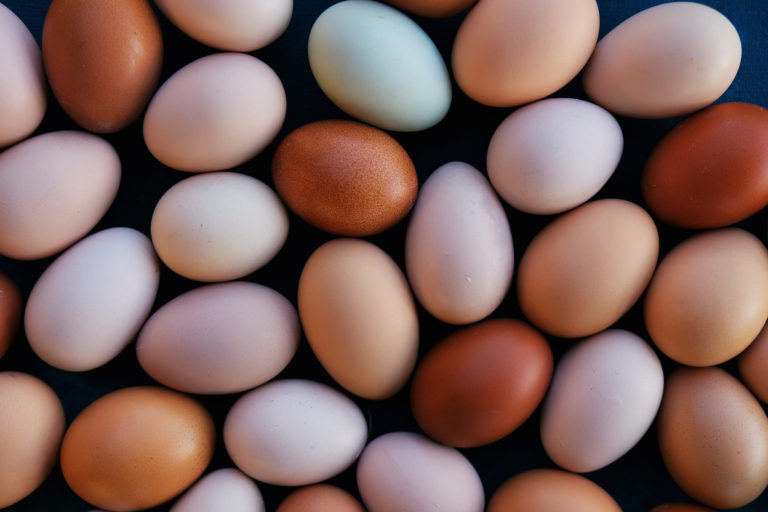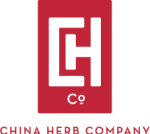SUPPORTING OVARIAN RESERVE WITH CHINESE MEDICINE

China Herb Company is deeply honored to support the clinical work of Dr. Ann Wang, the President of Treasure of the East.
Dr Wang has extensive experience treating female and male infertility. Here, she shares her knowledge of Supporting Ovarian Reserve with Chinese Medicine in the summer 2019 issue of Pacific College’s Oriental Medicine. Here’s an excerpt of her article was published in Pacific College’s Summer 2019 issue of Oriental Medicine.
China Herb is the exclusive distributor of Dr. Wang’s Fertility Formulas. Practitioners can find all her formulas under the products section of our HerbScript Pro Online Dispensary. Registration takes 5 minutes and you’ll be on your way!
———-
Without a doubt, the work that has brought me the most joy in my 39 years of practice has been helping my patients to conceive and to bring healthy babies to term. Fertility has become one of my specialties not only because of my growing experience in the field but also because infertility has grown more common over time. Low ovarian reserve has particularly become more prevalent in recent years. A decade ago, my patients experiencing low ovarian reserve were reliably age 40 or older. Today, it’s not uncommon for patients in their mid-30’s to experience low ovarian reserve. At the same time, more and more patients are waiting longer to have children.
Fortunately, TCM treatment for ovarian function has been found effective in clinical studies and in my practice. TCM considers that the main pathogenesis of ovarian reserve dysfunction is kidney deficiency and blood stasis. Kidney deficiency in these patients often expresses as dysfunction in the liver, heart and spleen as well. The treatment is to invigorate the kidney, fill the vital essence, tonify the blood, and regulate menstruation.
I will discuss a Chinese herbal formula called Zi Shen Yu Tai Wan, a variant called Fertile Tonic, and their impacts on low ovarian reserve patients in clinical trials as well as in my own practice when combined with acupuncture. I will share specific acupuncture points for each phase of the menstrual cycle later in this article.
Zi Shen Yu Tai Wan was originally called Shou Tai Wan when it was developed by Dr. Zhang Xichun, a famous doctor in the Qing Dynasty. In the early 1960s, the renowned fertility doctor and cofounder of the Guangdong University of Chinese Medicine, Dr. Luo Yuankai, modified the classical formula and named it Bu Shen Gu Chong Wan. Dr. Luo was later awarded by the Chinese Ministry of Public Health for his development of the formula and another formula for the induction of ovulation.
Today, the formula that Dr. Luo popularized as Bu Shen Gu Chong Wan is known across China as Zi Shen Yu Tai Wan. The formula is comprised of fifteen herbs: Tu Si Zi, Sha Shen, Shou Di Huang, Ren Shen, Sang Ji Sheng, E Jiao, He Shou Wu, Ai Ye, Bi Ji Tian, Bai Zhu, Dang Shen, Lu Jiao Shuang, Gou Qi Zi, Xu Duan, and Du Zhong. In the US, you can find a formula similar to Zi Shen Yu Tai Wan under the name Fertile Tonic.
In Clinical Studies
A wealth of clinical studies has been performed on Zi Shen Yu Tai Wan in China. Many of these studies focus on its impact on endometrial receptivity or on threatened miscarriage. While these applications are complementary to the application for improving ovarian reserve, I will focus on a study focused on ovarian reserve and its symptoms conducted by Dr. Yang Shenghua of Guangzhou University of Traditional Chinese Medicine.
In this 2010-2012 study, 40 patients with ovarian reserve dysfunction in the gynecological clinic of the First Affiliated Hospital of Guangzhou University of Traditional Chinese Medicine were divided into two groups: 20 patients in the Chinese medicine group and 20 patients in the Western medicine group. The Chinese medicine group participants were administered Zi Shen Yu Tai Wan while the Western medicine group participants were administered hormone replacement therapy (HRT) in the form of Progynova and progesterone. Prior to and following three months of treatment, patients’ 1. perimenopausal symptoms, 2. menstrual cycle regularity, and 3. hormone levels were observed. Both groups showed improvement following treatment, though along different indicators.
Dr. Yang’s team reported that patients experiencing perimenopausal symptoms related to low ovarian reserves observed marked improvement after treatment with Zi Shen Yu Tai Wan compared with treatment using HRT. Patients’ perimenopausal symptoms included lower back pain and knee pain, insomnia and hyperactive dreaming, fatigue, shortness of breath, and aversion to socializing.
Of patients experiencing menstrual cycle irregularity related to low ovarian function, the majority recovered to normal menstrual cycles after treatment with HRT. Zi Shen Yu Tai Wan was effective in many patients, but a smaller proportion of patients with menstrual cycle irregularity recovered fully after treatment with herbs than with HRT.
The hormones observed in the study were follicle stimulating hormone (FSH), luteinizing hormone (LH), estradiol (E2), inhibin B (INHB) and antimullerian hormone (AMH). The hormones FSH and AMH are indicators of ovarian reserve, while E2 is an indicator of ovarian function and egg quality. The hormone LH regulates the function of the ovaries and of the menstrual cycle, and INHB is a lagging indicator of the development of ovarian follicles.
Dr. Yang’s team found that compared to patients’ hormone levels prior to treatment, patients taking Zi Shen Yu Tai Wan observed improved levels of FSH and LH, but observed no significant change in E2. Patients taking HRT observed improved levels of FSH, but observed no significant change in LH or E2. Both groups showed improvement in their levels of AMH and INHB compared to their levels prior to treatment.
During the two-year period of the study, 4 out of 20 patients treated with Zi Shen Yu Tai Wan became pregnant. An additional 8 patients improved significantly, while 6 patients improved, and 2 patients observed no response. In the Western medicine group, 2 out of 20 patients became pregnant, 7 patients improved significantly, 8 patients improved, and 3 patients showed no response. No adverse reactions were observed in the Chinese medicine group. In the Western medicine group, 3 patients reported breast swelling and pain and 2 patients reported nausea and vomiting.
After statistical analysis, Dr. Yang concluded there was no significant difference between outcomes in the traditional Chinese medicine group and the Western medicine group, but that both groups showed improvement compared indicators to prior to treatment.
In My Practice
I use a combination of acupuncture and herbs in my fertility practice. It has been my experience that, in the treatment of fertility, acupuncture is most effective for stress reduction, menstrual cycle regulation, ovulation induction, and in vitro fertilization (IVF) support. I find that herbs are most effective for restoring or improving ovarian reserve, constitutional balance, glandular function, and egg quality. The combination of acupuncture and herbs has a greater effect in fertility care than either has on its own. With acupuncture and herbs, it’s possible to help patients with many aspects of fertility, including ovarian function, egg quality, cycle regulation, avoidance of miscarriage, and IVF preparation and support.
Acupuncture. The method of acupuncture I have been using in my practice is based on Dr. Zheng Guoping’s four groups of Acupuncture Fertility Assisting Points. The first group is to calm the mind, relax the body, and improve the blood calculation. The acupoints used are Shen Ting (DU-24) and He Gu (LI-04). The second group consists of auricular points to stabilize the mind, relax the body, and regulate the ovarian uterus function. There are four auricular points (the ovaries, uterus, kidneys and Shenmen), but only two points should be used at a time. The third group is a set of six fertility points for tonifying Chongren channels, regulating qi and blood, and supporting the ovary and uterus function. The acupoints are Zhong Ji (CV-3), Guan Yuan (CV-4), Gui Lai (ST-29, bilateral), and Zi Gong (EX-CA1, bilateral). The fourth group is to invigorate the kidney and liver, regulate the blood, strength the spleen and stomach function to support the ovary and uterus. The acupoints are Tai Xi (KD-3), San Yin Jiao (SP-6), Yin Ling Quan (SP-9), Zu San Li (ST-36), Zhong Wan (CV-12) and Bai Hui (GV-20).
Additionally, I use modifications according to patient differentiation in TCM diagnosis, and differentiation according to menstruation phases. For example, in the menstrual phase, the acupoints Shi Qi Zhui (EX-B-8) and Ming Men (GV-4) are added to the four groups of Acupuncture Fertility Assting Points described above. In the follicular phase, the acupoints Qi Hai (Ren-6), Guan Yuan (CV-4), Yang Ling Quan (GB-34) and Tai Chong (LV-3) are emphasized; during the ovulation phase, the acupoints Qi Hai (Ren-6), Guan Yuan (CV-4), Zi Gong (EX-CA1, bilateral), San Yin Jiao (SP-6), and Zu San Li (ST-36) are emphasized; and during the luteal phase, the acupoints Shen Shu (BL-23), Ge Shu (BL-17) and Fu Liu (KI-17) are added. The combination of these acupuncture points can help to improve the reproductive function, relax the body and mind, regulate the hormone, balance the yin and yang to create a healthy environment for fertility.
Herbs. Zhi Shen Yu Tai Wan is an extremely effective and widely used formula; however, I’ve used a variant of it for many years in my practice that is specifically designed for Western patients with low ovarian reserve and for patients also dealing with poor egg quality. The formula Fertile Tonic, like Zhi Shen Yu Tai Wan, works to improve ovarian reserves by invigorating the kidneys, regulating the liver, and tonifying the blood. Additionally, Fertile Tonic contains Chai Hu to smooth the Liver Qi to regulate emotions for a happy and peaceful feeling during the treatment of fertility, and Dan Shen to remove blood stasis for improved egg quality. The ingredients in Fertile Tonic are Bai Shao, Bu Gu Zhi, Chai Hu, Chuan Xiong, Dan Shen, Dang Gui, Du Zhong, Gan Cao, Gou Qi Zi, Gui Ban, Shu Di Huang, Tu Si Zi, Xian Mao, and Yin Yang Huo.
It is advised when taking both Zhi Shen Yu Tai Wan and Fertile Tonic to avoid consuming radishes, coix seeds (also known as Yi Yi Ren or Jacob’s Tears), and mung bean sprouts at the same time. If liver and kidney Yin deficiency patients feel dryness or bitterness in their mouths, they are advised to take the formula with water and honey.
In Conjunction. To boost ovarian reserves, improve follicular development, promote ovulation, and improve the quality of eggs, it is important to work with patients well in advance of pregnancy. Typically 3-6 months of treatment are needed prior to pregnancy to fully invigorate the kidney and the spleen. Patients experiencing poor egg quality should take Fertile Tonic or other herbal formulas that work to revitalize the kidneys and remove blood stasis as soon in the process as possible.
Low ovarian reserves may also manifest in irregular menstruation. If so, patients will benefit from acupuncture 1-2 times every week and herbs taken twice a day for 20 days starting on the 5th day of menstruation for a period of three months. While HRT is the most direct treatment for cycle regulation, acupuncture and herbs can gently and successfully regulate the cycle and the uterine environment while also addressing delayed menstruation or hypomenorrhea. Acupuncture and herbs may also be used in conjunction with HRT for severe cases or for patients who prefer to see faster results.
Low ovarian reserve patients, due to associated poor egg quality, are also often at risk of threatened miscarriage or recurrent miscarriage. In these cases, the goal is to improve luteal function and endometrial receptivity by invigorating the kidney and spleen, to nourish the blood, and to stabilize the fetus. Particularly for patients with frequent spotting, lumbar soreness and lower abdominal pain, acupuncture should be administered 1-2 times a week and herbs should be taken 12 weeks prior to pregnancy through the first 12 weeks of pregnancy.
Finally, patients undergoing IVF frequently see higher rates of success when also undergoing TCM treatment for ovarian function. Of patients undergoing IVF, those with low ovarian reserve are more likely to respond to follicle simulating drugs poorly (few mature eggs) or not at all (eggs are not mature). Even when mature eggs are retrieved, the eggs are more often of low quality and so they less frequently are able to develop into the stage needed to successfully transfer. Further, poor egg quality can lead to higher rates of miscarriage after successful transfer and implantation.
The benefits of acupuncture and herbal treatment in advance of IVF are especially beneficial, as I’ve seen in my last 17 years of treating infertility patients in partnership with IVF specialists in Central New York. In patients simultaneously undergoing Chinese medicine and IVF, I’ve observed improved response to ovulation simulation drugs, higher numbers of retrieved mature eggs, more fertilized eggs, more quality embryos, and higher chances of conception with each round of IVF. Even after IVF, the rates of miscarriage are frequently reduced in patients undergoing treatment with acupuncture and herbs.
In Conclusion
While fertility is an extremely complex field, the herbal formulas described in this article are effective tools for building your integrative fertility practice. Particularly when combined with acupuncture, patients experiencing a wide range of fertility issues may benefit and increase their chances of conception.
It takes patience and dedication to see patients through their fertility issues; however, the rewards are tremendous for patients, their families, and practitioner alike. The fertility work I do is the work that I personally welcome and appreciate the most. I hope that you too may experience the immense joy of meeting highly anticipated newborns and the delight of seeing them grow year after year.
Ann Wang, CMD, L.Ac. is the Founder and Director of the Integrative Medicine Center in Ithaca, NY and Consultant for Treasure of the East. She received her medical degree in Chinese medicine from Shandong University of Traditional Chinese Medicine. Previously, she was a Chief Medical Administrator of the Chinese State Administration of Traditional Chinese Medicine, an adjunct professor of the China Academy of Chinese Medical Sciences, and a faculty member at Cornell University. She is one the first overseas practitioners to be awarded the title of Doctor of Chinese Medicine, Physician in Chief by the World Federation of Chinese Medicine Societies. She is also a member of the Presidential Council of the World Federation of Chinese Medicine Societies. She specializes in pain reduction, management of chronic illness, and women’s health and fertility.
WRITTEN BY ANN WANG





